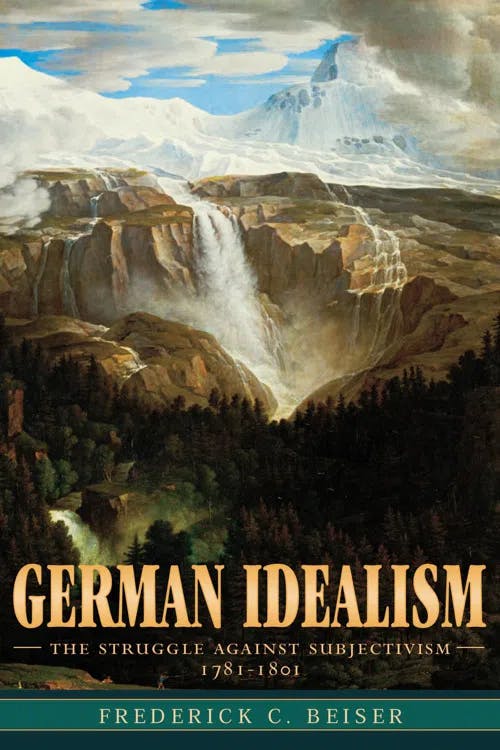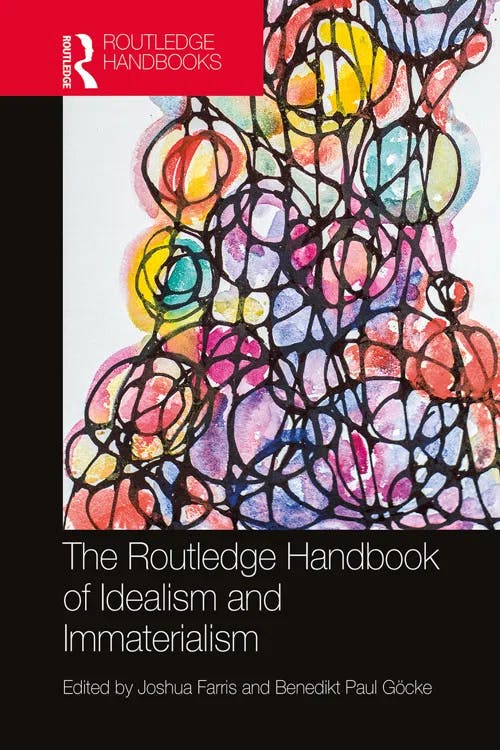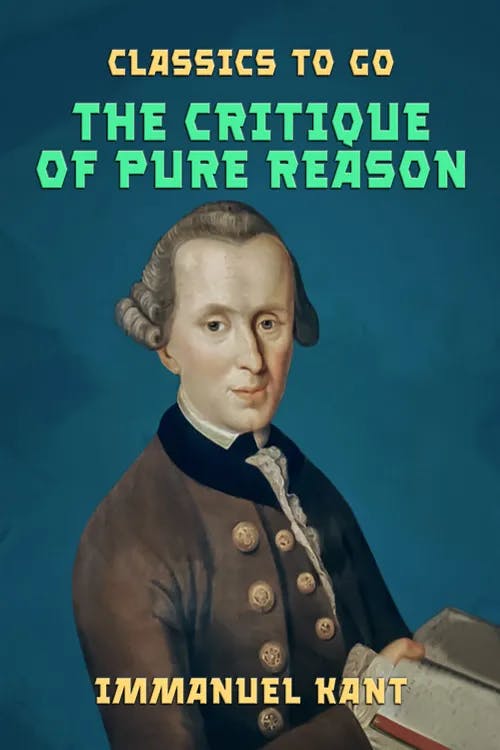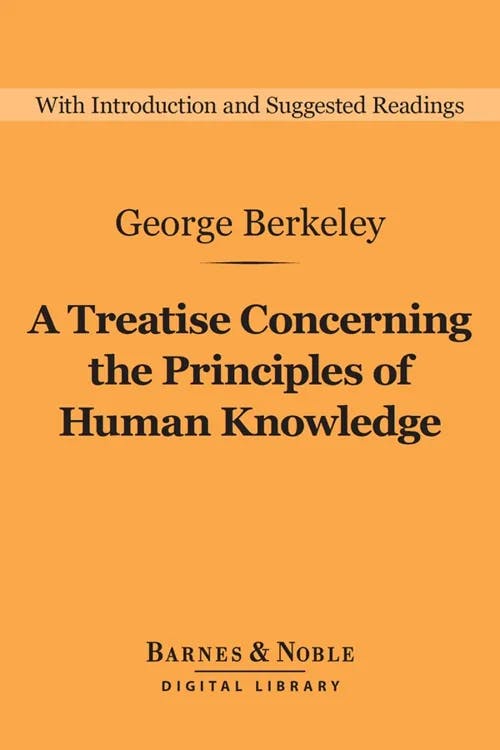What is Idealism?
PhD, Media Arts (Royal Holloway, University of London)
Date Published: 26.10.2023,
Last Updated: 24.11.2023
Share this article
The words “idealism” or “idealist” are probably familiar ones, often used to describe an optimistic, naive, or even immature disposition. In philosophy, however, idealism describes a certain approach to the question “what is real?”, which became particularly popular in Europe during the late seventeenth, eighteenth and nineteenth centuries. Many philosophers preceding this period have been identified as “idealists,” however this classification was assigned retroactively during the 1700s. The following study guide will explore some of these key idealist thinkers in Western philosophy, from ancient Greece to the prominent idealists of the modern era.
In general, idealism promotes the primacy of concepts and ideas over a material world or objective reality. It proposes that knowledge and reality are fundamentally mental activities which are not garnered through sensory experience. In German Idealism, Frederick Beiser outlines the complexity of idealism,
Idealism, broadly speaking, is the doctrine that reality is somehow mind-correlative or mind-coordinated. Bertrand Russell said that “idealists tell us that what appears as matter is really something mental.” But that is rather stretching things. Idealism certainly need not go so far as to maintain a causal theory to the effect that mind somehow makes or constitutes matter. This over-simple view of idealism ignores such versions of the theory as, for example, the explanatory idealism which merely holds that an adequate explanation of the real always requires some recourse to the operations of mind. A genuine idealism will indeed center around the conception that reality as we understand it reflects the workings of mind. But it need not necessarily see mind as a causal source. (2008)
Frederick C. Beiser
Idealism, broadly speaking, is the doctrine that reality is somehow mind-correlative or mind-coordinated. Bertrand Russell said that “idealists tell us that what appears as matter is really something mental.” But that is rather stretching things. Idealism certainly need not go so far as to maintain a causal theory to the effect that mind somehow makes or constitutes matter. This over-simple view of idealism ignores such versions of the theory as, for example, the explanatory idealism which merely holds that an adequate explanation of the real always requires some recourse to the operations of mind. A genuine idealism will indeed center around the conception that reality as we understand it reflects the workings of mind. But it need not necessarily see mind as a causal source. (2008)
Beiser references the extreme idealist position that lends no credence to an external reality whatsoever; holding that reality exists solely within the mind, rather than outside in some external realm. While this describes a version of idealism, in broader terms idealists reject the study of things in themselves in favor of the study of knowledge as a feature of the mind. By contrast, realism — which is generally seen as the main opposing philosophy to idealism — holds that what we perceive is what exists in the outside world; that perception is a means of apprehending the real, material world. Indirect realism then refers to a position that falls between realism and extreme idealism, suggesting that there is a perceivable outside world, but much of what we experience is a product of our minds and does not have any material existence. In some cases, idealism holds that the mind alone apprehends true reality. In others, perception participates in shaping and organizing what is real. Whether idealist positions reject the existence of a material world altogether, or merely assert that an external reality is unknowable except as framed by interpretations and concepts, idealism proposes that reality is always relative to the mind, and that the mind always takes priority in explorations of knowledge and being.
Epistemological and ontological idealism
There are so many different forms of idealism that it can be difficult to present it as a homogenized school of thought. All of these idealist positions believe to varying degrees, however, that reality and our perceptions depend on our own minds. Typically, the spectrum of idealism is split into two categories: epistemological idealism and ontological idealism. Epistemology refers to the branch of philosophy that deals with the nature of knowledge – how we come to acquire knowledge and how it’s constituted — and ontology is the branch of philosophy that addresses the question of what exists.
Epistemological idealism encompasses both indirect realism and idealism, proposing that what we experience of the world is determined by the structures of thought and the function of our minds. Although epistemological idealism for the most part avoids making any actual epistemological claims about the world — for example, claims about how accurately our experience maps on to external reality — it is understood to accept that there is a mind-independent reality. Any perception of this reality, however, is seen as being affected and shaped by the intrinsic structures of our minds to such a degree that we cannot claim any real knowledge of reality itself. Hence, for the epistemological idealists, all knowledge must be understood as self-knowledge or knowledge of the mind.
On the other hand, we have ontological idealism. Ontological idealism states that reality is determined by thought because reality is thought; the mind is the absolute foundation of reality. An extreme form of this ontological position would look like the “immaterialism” of George Berkeley (1685–1753). Berkeley believed there were no material substances, only immaterial mental substances; that nothing existed except ideas. As Joshua Farris and Benedikt Paul Göcke explain,
In other words, for Berkeley, it is not simply the world (locally construed) that is mind-dependent, but the whole of reality, including abstract objects, that are dependent on the Divine mind publishing, as it were, his ideas. Berkeley, though, is just one fine representative of metaphysical idealism; there are numerous ways of working out both idealism and immaterialism. (2021)
Joshua Farris and Benedikt Paul Göcke
In other words, for Berkeley, it is not simply the world (locally construed) that is mind-dependent, but the whole of reality, including abstract objects, that are dependent on the Divine mind publishing, as it were, his ideas. Berkeley, though, is just one fine representative of metaphysical idealism; there are numerous ways of working out both idealism and immaterialism. (2021)
Berkeley represents an extreme example of ontological idealism, however we will come to see how different influential idealist thinkers can hold different ontological ideas and still be idealists.
Plato and idealism
Plato (424/423 – 348 c. BCE) was a classical Greek philosopher with significant influence on the trajectory of Western philosophy, particularly with his assertions of idealism. Philosophy’s task, according to Plato, was not primarily to investigate material objects in the world but rather to examine ideas and concepts — like beauty, truth, goodness. These things are more absolute and eternal than anything else, and hence, tell us more about what is real and how we make sense of what exists. This is evident in Plato’s theory of Forms. In describing this theory, Christian Hengstermann explains,
At the heart of his idealism is the distinction between a realm of temporal corporeal becoming perceived by the senses and one of eternal incorporeal being grasped by the intellect. The intelligible world is viewed as the archetype and cause of the empirical world Plato believed to exist and evolve by virtue of its participation in the forms. (“Plato and the beginnings of Christian idealism,” in The Routledge Handbook of Idealism and Immaterialism, 2021)
Plato considered what the perfect or most ideal version of something could be. He concluded that all things we can conceive of in the world have their ideal antecedents in perfect “Forms,” and that these Forms act as guides or blueprints for our own understanding. But where do these Forms come from and how do we experience them? According to Plato, there is a realm where these ideal Forms exist that transcends time and space. This realm contains all the perfect examples of things: the most perfect circle, the most perfect chair, table, even the most perfect friendship. These Forms, and the realm they exist in, are abstract, but real nonetheless; unchanging, and absolute. It is in the image of these abstract Forms that God created the physical world, so what we experience in the empirical world is a mere, imperfect copy. And yet, we recognize these copies because we know the ideal Form “which can only be seen with the eye of the mind” (Plato, 375 c. BCE [2021] Plato: The Complete Works). Even though these Forms cannot be empirically experienced, our eternal soul, before we were given a physical entity, experienced them. This is what allows us to recognize objects in the world, in their imperfect, plural state. So, for Plato, there are objects in the world that are “always in a state of change. And these you can touch and see and perceive with the senses” while the “unchanging things you can only perceive with the mind” (Plato, 375 c. BCE [2021]).
One of the ways in which Plato illustrates this relationship between our empirical experience and the non-physical realm of ideals is through the allegory of the cave. Plato asks us to imagine prisoners who have lived in a cave for their whole lives. They are bound, unable to move, looking only at the cave wall. Behind the prisoners, there is a blazing fire. People holding a series of objects pass before this fire, casting shadows on the wall that the prisoners face. For the prisoners, those shadows make up the whole of their reality, even though a whole world lies beyond the cave. Plato uses this allegory to examine the journey from ignorance to enlightenment; when one prisoner is freed and journeys into the true reality beyond the cave, this mirrors the philosophical journey we undertake when we look beyond the illusory shadows of our own sensory experience to consider the perfect Forms.
Plato’s idealism explains our experience in a way that prioritizes a conceptual realm; where true, universal reality can only be accessed in the mind as ideas. This serves to demonstrate the way that idealism can be metaphysical/ontological without subscribing to the extreme immaterialism advocated by philosophers such as Berkeley. Plato still believed in a physical reality, even if he only regarded it as an imperfect copy of the world of Forms. True reality — this realm of Forms — is primarily conceptual, apprehended in the mind, but the empirical world still exists just as the shadows on the cave wall exist.
Kant’s transcendental idealism
We have seen, so far, the way in which idealism considers reality to exist most fundamentally in the mind, experienced only by the mind’s eye. In reference to ontological idealism, Farris and Göcke explain a slightly different idealistic approach,
There are other versions of idealism and immaterialism that require careful articulation. These include, but are not limited to, those of Kant, Leibniz, Hegel, Bradley, Edwards, potentially Husserl, Royce, and many others. For some versions of idealism, it is not simply one mind, the Divine mind, that has priority of place, but one version gives priority to transcendental explanations via minds. This is Kant’s view – or one interpretation of Kant. For Kant, the empirical transcendentally depends on the structuring role of minds. And for a more uncommon idealist variant, one could take Heidegger as an idealist. For Heidegger, it is both ‘subjective’ space and ‘objective’ space that necessarily overlap as explanations of the world. (The Routledge Handbook of Idealism and Immaterialism, 2021)
Immanuel Kant (1724–1804) is considered an idealist, but he’s also credited with attempts to synthesize the empiricist and the rationalist worldview. For Kant, our understanding of the world is dependent on mental categories, for example, time, space, and causation. This is how Kant develops his much-debated “transcendental idealism.” He explains this position in The Critique of Pure Reason,
But, though all our knowledge begins with experience, it by no means follows that all arises out of experience. For, on the contrary, it is quite possible that our empirical knowledge is a compound of that which we receive through impressions, and that which the faculty of cognition supplies from itself (sensuous impressions giving merely the occasion), an addition which we cannot distinguish from the original element given by sense. (Kant, 1781 [2022])
Immanuel Kant
But, though all our knowledge begins with experience, it by no means follows that all arises out of experience. For, on the contrary, it is quite possible that our empirical knowledge is a compound of that which we receive through impressions, and that which the faculty of cognition supplies from itself (sensuous impressions giving merely the occasion), an addition which we cannot distinguish from the original element given by sense. (Kant, 1781 [2022])
We see here how, although knowledge does not precede experience, for Kant knowledge is a feature of the mind. Kant was particularly interested in concepts like space and time. Space and time are not things in and of themselves; they do not exist as part of objects in the world, and yet they still exist. Furthermore, we all understand what these things mean, even if there’s no empirical evidence of them. Kant concludes that things — space, time, causation — must be mental constructs or categories; they belong to an intrinsic intuition. Our minds contain the idea of time and space; that is, our minds have a built-in capacity to perceive the world through a spatiotemporal lens.
For Kant, when we look at objects we are merely experiencing their appearances (the phenomena), rather than the objects themselves (the noumena). The noumenal world refers to objects as they are — independent from our perception of them. Things in themselves exist, but as raw data which is then organized by the mind (by the faculties of intuition), and this is how perception works. So, for Kant, objects in the world exist, but our means of apprehending them — through categories like time and space — are completely mind-dependent. Our minds do not create the objects, but the objects do not exist as we perceive them either. Therefore, knowledge transcends the raw data of sensory experience, revealing the generative and organizational power of the mind.
Kant believed, however, that we could not make any knowledge claims about the noumenal world itself, as we are not able to experience it directly. There is also much philosophical debate over whether Kant sees the phenomenal and noumenal worlds as two separate substances (the “two-world” interpretation), or as different aspects of the same substance (the “two-aspect” interpretation). Is the phenomenal world a lens through which we see something of the underlying noumenal world, or are they two separate worlds altogether? Kant seems inconsistent in his approach to such questions, and so the answers remain controversial. What remains clear, however, is Kant’s emphasis on the mind’s transcendental power in organizing the objects of our experience.
Idealism and solipsism
A primary criticism of idealism is that it is a solipsistic philosophy. This means it falls prey to the inevitable conclusion that we cannot prove the existence of anything or anyone outside of our own minds.
René Descartes (1596–1650) famously justified the existence of the conscious mind, asserting “I think, therefore I am” (Discourse on Method, 1637 [2015]). Descartes was troubled by the fallibility of his senses. If we cannot rely on our senses, Descartes questioned whether we could be certain of any external reality; this would deny any claim to knowledge outside of ourselves. While it is generally held that philosophy should avoid the pitfall of solipsism, idealism (at times) appears to accept it. Beiser claims,
According to this interpretation, German idealism is essentially the culmination of the Cartesian tradition. It accepts some of the central assumptions of this tradition: that epistemology is philosophia prima; that only self-knowledge is certain; that the immediate objects of knowledge are ideas; and that knowledge consists in contemplation rather than action. But it goes even further than Descartes because it takes these assumptions to their ultimate bitter conclusion—namely, subjectivism, the doctrine that the subject has an immediate knowledge only of its own ideas, so that it has no knowledge beyond its circle of consciousness. (German Idealism, 2008).
Under the idealist position, we have no access to the world or to others. If our knowledge solely consists of our own concepts and ideas, how do we know what else exists? How do we know that our minds are not the only thing in existence and that everything we think we perceive is mere illusion? Idealism does not provide us with any satisfying epistemological or ontological certainty. It leaves us, for the most part, unable to say what exists or what we know.
While it is true that, according to idealism, the primary objects of knowledge are ideas and concepts, rather than sensory experience, there are still ways the idealists justify their beliefs in the face of solipsistic threats. In some instances, the primacy of a spiritual reality, although known only in the mind, is seen as being enough to justify claims of the existence of God, or of other minds. For Descartes, God was a benevolent being who bestowed on our minds the ability to know him. God would not deceive us, therefore we must be justified in the apprehension of the objects of consciousness. For Berkeley, whose extreme idealist position is that there is no reality beyond the mind, solipsism might seem to be inescapable. However, Berkeley concedes that there are things he experiences that seem to be outside of the will of his own consciousness. He uses the example of waking up in the morning. He does not control what he perceives when he opens his eyes, despite believing that all reality is made up of ideas and ideas come from the mind. Berkeley considers the nature of these perceptions, writing,
and so likewise as to the hearing and other senses, the ideas imprinted on them are not creatures of my will. There is therefore some other Will or Spirit that produces them. (1710 [2020])
George Berkeley
and so likewise as to the hearing and other senses, the ideas imprinted on them are not creatures of my will. There is therefore some other Will or Spirit that produces them. (1710 [2020])
Berkeley concludes that these seemingly external ideas justify the existence of a mind outside of his own. While this assertion itself invites further questions about the nature of perception and what it is we perceive, we can begin to see how idealism defends itself against instances of subjectivism.
Idealism, today, is not seen as a particularly tenable philosophical position to hold. In response to the rise of idealism and rationalism in the mid 17th century came classical empiricism, which rooted reality in a knowable objective world. This tends to be closer to the way in which we understand the world and the content of perception contemporarily. Through such thinkers as Descartes and Berkeley, however, we can see the way that philosophies that problematize the primacy of experience and the assumption of a material, objective world, do not automatically fall prey to solipsism.
Closing thoughts
Of course, idealism is a much broader and more diverse topic than this introductory article can contain. In Western philosophy, which we have focused on, other notable strands of idealism include Georg Wilhelm Friedrich Hegel’s (1770–1830) absolute idealism and the work of Johann Gottlieb Fichte (1762–1814), who is often credited as the founder of German idealism. Types of idealism are also observable in Eastern philosophy. The Indian school of thought, Advaita, for example, states that the only thing that is real is Brahman, the deity of creation that inhabits all souls and consciousnesses. More resources on the vast topic of idealism can be found in Perlego’s library, and the further reading section below can act as a guide through that research.
Further reading on Perlego
Idealism and Existentialism: Hegel and Nineteenth- and Twentieth-Century European Philosophy (2010) by Jon Stewart
The Works of George Berkeley (2012) by George Berkeley
Plato (2014) by Robin Barrow
The Threat of Solipsism (2020) by Jônadas Techio
Apperception and Self-Consciousness in Kant and German Idealism (2020) by Dennis Schulting
Advaita Epistemology and Metaphysics: An Outline of Indian Non-Realism (2013) by Chakravarthi Ram-Prasad
Hegel: Texts and Commentary (1977) by G. W. F. Hegel and Walter Kaufmann
Kant on Intuition: Western and Asian Perspectives on Transcendental Idealism (2018), edited by Stephen R. Palmquist
Idealism FAQs
What is idealism in simple terms?
What is idealism in simple terms?
What is the difference between epistemological idealism and ontological idealism?
What is the difference between epistemological idealism and ontological idealism?
What is Plato’s theory of Forms?
What is Plato’s theory of Forms?
What is Kant’s transcendental idealism?
What is Kant’s transcendental idealism?
What is a criticism of idealism?
What is a criticism of idealism?
Bibliography
Beiser, F. (2008) German Idealism. Harvard University Press. Available at: https://www.perlego.com/book/1147893/german-idealism-the-struggle-against-subjectivism-17811801-pdf
Berkeley, G. (2012) A Treatise Concerning the Principles of Human Knowledge. Barnes & Noble. Available at: https://www.perlego.com/book/3716092/a-treatise-concerning-the-principles-of-human-knowledge-barnes-noble-digital-library-pdf
Farris, J. and Göcke, B. P. (eds.) (2021) The Routledge Handbook of Idealism and Immaterialism. Taylor and Francis. Available at: https://www.perlego.com/book/2529748/the-routledge-handbook-of-idealism-and-immaterialism-pdf
Hengstermann, C. (2021) “Plato and the beginnings of Christian idealism,” in The Routledge Handbook of Idealism and Immaterialism. Taylor and Francis. Available at: https://www.perlego.com/book/2529748/the-routledge-handbook-of-idealism-and-immaterialism-pdf
Kant, I. (2022) The Critique of Pure Reason. Otbebookpublishing. Available at: https://www.perlego.com/book/3556929/the-critique-of-pure-reason-pdf
Allais, L. (2004) “Kant's One World: Interpreting 'Transcendental Idealism.'” British Journal for the History of Philosophy. Available at: https://www.tandfonline.com/doi/abs/10.1080/0960878042000279314
Plato (2021) Plato: The Complete Works. Classics HQ. Available at: https://www.perlego.com/book/3119113/plato-the-complete-works-pdf
PhD, Media Arts (Royal Holloway, University of London)
Aoiffe Walsh has a PhD in Media Arts from Royal Holloway, University of London. With a background in film studies and philosophy, her current research explores British literary modernism, with a particular focus on surrealism between the wars. She has lectured and published pieces on documentary and film theory, film history, genre studies and the avant-garde.




